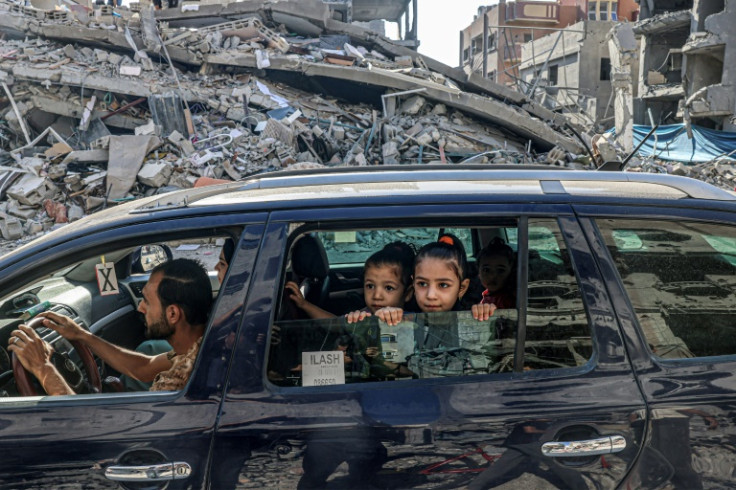UN Calls For $294 Mn For 'Urgent Needs' In Gaza, Occupied West Bank
The United Nations on Thursday issued an emergency appeal for $294 million to address "the most urgent needs" in Gaza and the occupied West Bank, where more than 400,000 Palestinians have fled their homes in recent days.

The United Nations on Thursday issued an emergency appeal for $294 million to address "the most urgent needs" in Gaza and the occupied West Bank, where more than 400,000 Palestinians have fled their homes in recent days.
The funds would be used to help more than 1.2 million people, the UN Office for the Coordination of Humanitarian Affairs (OCHA) said, adding that recent fighting in the region had left aid groups without adequate resources.
On Saturday, Hamas gunmen swept into small towns, kibbutzim and a music festival in Israel, indiscriminately killing more than 1,200 people and taking about 150 hostages.
Israel has retaliated by raining air and artillery strikes on Gaza -- a densely populated enclave of 2.3 million people -- flattening buildings and killing more than 1,400 people, many of them civilians.
Humanitarian needs compounded by the May 2023 escalation in Gaza and the deterioration of the situation in the West Bank "have left humanitarian organizations without the resources required to adequately respond to the full range of needs of vulnerable Palestinians," OCHA said in its appeal.
The UN has previously estimated it would need $502 to fund operations to aid 2.1 million Palestinians in 2023, a goal that is less than 50-percent financed.
Nearly 60 percent of households in Gaza were considered food insecure before the start of the new hostilities.
As of late Thursday, the number of displaced in Gaza rose by over 84,400 people to reach more than 423,300, according to OCHA figures.
After Israeli strikes on water infrastructure and the cessation of water supplied by Israel to the enclave since Sunday, "most residents in the Gaza Strip no longer have access to drinking water from service providers or domestic water through pipelines," OCHA said.
"UNICEF reports some have already begun drinking seawater" in response, it added.
Additionally, "health facilities are overwhelmed, medical stocks are in short supply and access to hospitals and medical care is being hindered by the ongoing hostilities and damaged roads."
Gaza is home to some 50,000 pregnant women -- 5,500 of whom are due to give birth in the coming month -- "who are struggling to access essential health services as healthcare workers, hospitals and clinics come under attack."
While much of the focus has been on Gaza, "the situation in the West Bank remains tense," OCHA said, citing confrontations between the military and Palestinians, "settler violence" and "extensive closures... imposed around West Bank cities" impacting access to essential services.
© Copyright AFP 2026. All rights reserved.





















